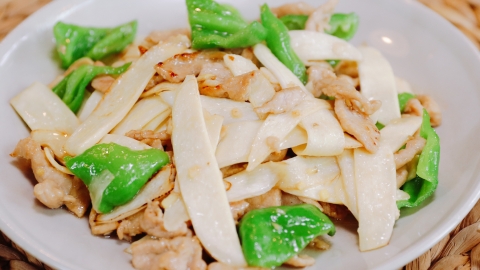Is the potassium content high in Zizania (wild rice)?
Generally speaking, water bamboo contains a high amount of potassium and is considered a potassium-rich vegetable.

Nutritional data indicates that every 100 grams of water bamboo contains approximately 200 milligrams of potassium. Compared to common vegetables like tomatoes and lettuce, water bamboo has a notably higher potassium content. Potassium plays a crucial role in regulating osmotic pressure within the body and maintaining normal nerve and muscle function. Consuming water bamboo in appropriate amounts can help replenish the body's potassium needs and meet daily nutritional requirements.
Different cooking methods may affect the potassium content of water bamboo. Short cooking methods such as steaming or stir-frying better preserve potassium, while prolonged boiling or blanching may cause some potassium to leach into the water, thereby reducing its content. Additionally, the potassium content of water bamboo is also related to its growing environment. When the soil contains sufficient potassium, water bamboo tends to accumulate more potassium; conversely, its potassium content may be somewhat lower.
When consuming water bamboo to supplement potassium, it is important to control intake according to individual health conditions. People with kidney insufficiency or those needing to restrict potassium intake should consume it cautiously and avoid excessive consumption at one time.




